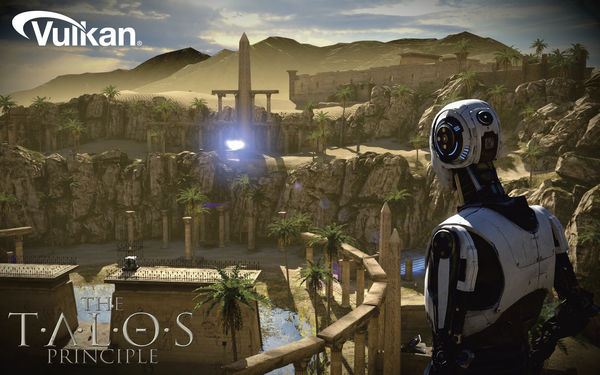Vulkan now supported by Intel: VR in Windows 10 PCs is about to get a lot more interesting

It’s no secret that VR is the next big thing in tech. Lenovo, Dell and HP are among several tech manufacturers engaging in an “arms race” to get the best consumer-grade VR gear on the market.
The term “consumer-grade”, of course, refers to VR headsets and accessories that, while capable of providing a pretty decent immersive experience, won’t be likely to match the specs of high-end headsets such as Oculus Rift or HTC Vive.
With that said, it’s worth noting the importance of beefier PC specs, and even more importantly, the refinement of the games and applications used via a VR headset.
Virtual Reality headsets aren’t simple machines, but with the exception of Microsoft HoloLens, they are only as good as the hardware and software available, considering that in its simplest form, a VR headset is not unlike an external display, with integrated motion sensors and multimedia capabilities, including an integrated audio card, speakers and a microphone.
The difference between any regular VR headset and HoloLens, is that HoloLens has a Windows 10 PC inside, which allows the headset to function untethered.
As it turns out, Intel is about to make things much more interesting for consumers and PC makers, as it officially supports Vulkan, an API (Application Programming Interface), similar to DirectX 12, but in many aspects, built around VR gaming.
The availability of a platform that is designed to optimize VR applications, and is fully supported by Intel Core processors, will allow for an even smoother, and immersive experience in VR, even with the cheaper headsets about to flood the market.
Anyone who owns a high-end system and headset, is very familiar with how much work VR puts on its host system, like extremely high demand of GPU resources, memory, CPU and, of course, the need to keep it all down to reasonable temperatures, with liquid-cooling solutions, and giant custom heatsinks.
The above is all well and good for hardcore gamers who are already heavily invested in their systems and willing to spend time, effort and hard-earned cash into building the ultimate VR rig, but what about the rest of us?
This is where Vulkan comes in, along with the upcoming headsets designed for Windows 10.
These new systems might not be capable of the amazing realism and immersion of their top-shelf counterparts, but in their own leagues, they will shine, especially as developers create applications and games optimized for these new headsets, using Vulkan support.
This means that even Windows 10 PCs in the ultraportable and 2-in-1 category, could be capable of providing solid, albeit more modest VR support.
There is a strong chance for these systems to include, Surface Book and Pro devices, as well as many other brands, aside from the high-end ones like Asus and MSI.
Ready to shop?
Looking for the most powerful desktop all-in-one PCs?, PortableOne has the best selection of custom desktop PCs whether you are looking for a stylish and powerful iMac or a versatile Windows 10 PC.